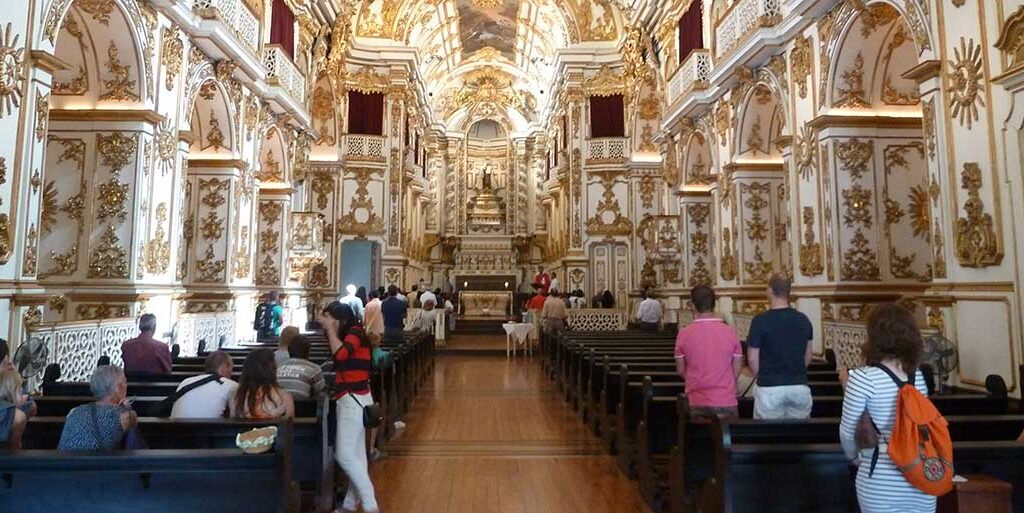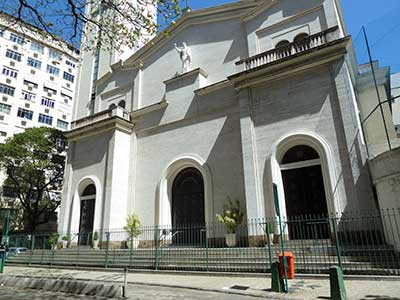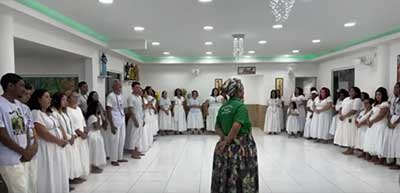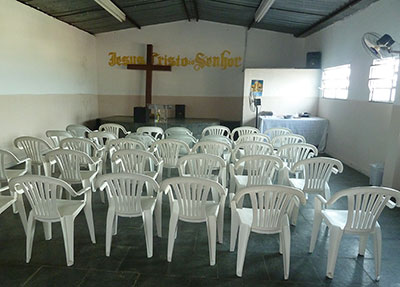What is the main religion in Rio de Janeiro?

Overview of the main religions in Rio de Janeiro
Rio de Janeiro, often referred to as the “Cidade Maravilhosa” or Marvelous City, is known for its vibrant culture, stunning landscapes, and lively festivities. But what about its religious beliefs and practices? Let’s take a closer look at the main religions that coexist harmoniously in this enchanting city.
Catholicism in Rio de Janeiro

Catholicism has played a significant role in shaping the religious landscape of Rio de Janeiro. Introduced by Portuguese colonizers during the 16th century, Catholicism quickly took root and became deeply ingrained in the hearts and minds of the city’s residents, known as Cariocas.
Today, Rio de Janeiro boasts numerous beautiful churches and cathedrals, serving as important religious and architectural landmarks. The iconic Christ the Redeemer statue atop Corcovado Mountain is a symbol of Catholicism’s enduring influence in the city. Despite the growing religious diversity, Catholicism continues to be a prevalent faith among the people of Rio de Janeiro.
Afro-Brazilian religions in Rio de Janeiro

Alongside Catholicism, Rio de Janeiro is home to a vibrant community of Afro-Brazilian religions, such as Candomblé and Umbanda. These religions originated from a fusion of African spiritual practices brought by enslaved Africans and indigenous beliefs. Candomblé, with its colorful rituals and worship of Orishas (deities), holds a special place in the hearts of many Cariocas.
Umbanda, on the other hand, blends elements of African, indigenous, and Catholic traditions, creating a unique syncretic faith. Both Candomblé and Umbanda have a significant presence in Rio de Janeiro, attracting both locals and tourists alike to their mesmerizing ceremonies and spiritual practices.
Protestantism in Rio de Janeiro

Protestantism has experienced remarkable growth in Rio de Janeiro in recent decades. Various Protestant denominations, including Pentecostal and Evangelical churches, have gained a considerable following. These churches offer a different approach to worship, emphasizing personal faith and a direct relationship with God.
The rise of Protestantism has brought about changes in religious dynamics, challenging the long-standing dominance of Catholicism. Today, Protestant churches in Rio de Janeiro have become vibrant communities, attracting believers with their energetic services and strong sense of community.
Other religious groups in Rio de Janeiro
In addition to Catholicism, Afro-Brazilian religions, and Protestantism, Rio de Janeiro is also home to other religious groups. Judaism, Islam, Buddhism, and Hinduism have small but active communities that contribute to the city’s religious diversity. These communities have established places of worship, cultural centers, and organizations that promote their respective faiths. The presence of these religious groups adds yet another layer of richness to Rio de Janeiro’s cultural tapestry.
Religious diversity and tolerance in Rio de Janeiro
One of the remarkable aspects of Rio de Janeiro’s religious landscape is the acceptance and tolerance among different faiths. Despite the historical dominance of Catholicism, the city has embraced religious diversity and fostered an environment where different beliefs can coexist harmoniously. Interfaith dialogues, cultural exchanges, and initiatives promoting religious tolerance are common in Rio de Janeiro. This open-mindedness has contributed to a vibrant and inclusive society where individuals are free to practice their respective faiths without fear of persecution or discrimination.
Religious practices and traditions in Rio de Janeiro
Religious practices and traditions in Rio de Janeiro are deeply ingrained in the daily lives of its residents. Catholic traditions, such as processions, pilgrimages, and the celebration of saints’ feast days, are observed with great devotion. Afro-Brazilian religions, with their rhythmic music, dance, and ceremonies, offer a unique spiritual experience. Protestant churches often hold dynamic worship services, where passionate singing and preaching are central.
These practices and traditions not only provide spiritual nourishment but also serve as a way for the community to come together and celebrate their shared beliefs.
Impact of religion on Rio de Janeiro’s culture and society
Religion has a profound impact on Rio de Janeiro’s culture and society. It influences various aspects of Cariocas’ lives, including their values, traditions, and social interactions. Festivals and religious celebrations, such as Carnival and the Festa de Iemanjá, are deeply rooted in religious beliefs and have become integral parts of Rio de Janeiro’s cultural identity.
Religion also plays a role in social issues, with churches and religious organizations actively involved in initiatives related to poverty alleviation, education, and social justice. The influence of religion can be felt in the arts, music, and literature of Rio de Janeiro, reflecting the spiritual essence of the city.
Conclusion
Rio de Janeiro is a city that embraces religious diversity, where Catholicism, Afro-Brazilian religions, Protestantism, and other faiths coexist harmoniously. Each religion brings its unique practices, traditions, and beliefs, contributing to the rich cultural tapestry of the city.
The acceptance and tolerance among different religious groups create an inclusive environment where individuals are free to express their faiths without fear of discrimination. The impact of religion on Rio de Janeiro’s culture, society, and daily life is undeniable, making it a truly enchanting city for those seeking a deeper understanding of Brazil’s religious landscape.